
Google's ‘Helpful Content update' is coming.
So, to be helpful, we want to give a quick rundown on what Google asks us as content creators to keep in mind.
And share some ideas that may help protect your content creation process moving forward!
What we know about Google's helpful content update so far
It hasn't ‘officially' started rolling out yet. But, historically, these updates tend to begin before any announcement.
It's called the ‘helpful content update‘ and is a site-wide signal that targets informational content. However, how ‘helpful' a site's content is pretty subjective.
You'd think Google could gauge this pretty easily through a site's bounce rate and time on page. But the reality isn't black and white, and there are ‘hundreds' of ranking factors.
So it's not entirely clear how things are going to look as it's expected to last for several months.
We'll have to update later. But for now, let's analyze what Google states the helpful content update is all about and see if we can help on the fly!

Create Content That Interests and Engages Real People
The update is going to target content made for search engines.
This isn't new, and it's something that has been a priority for Google since 2012's Panda update.
The biggest difference between then and now is the technology at their disposal. This update will make use of a new machine learning algorithm that's apparently able to identify unhelpful content.
What ‘unhelpful content' means isn't clear, but it seems their goal is to promote content made for ‘people-first'.
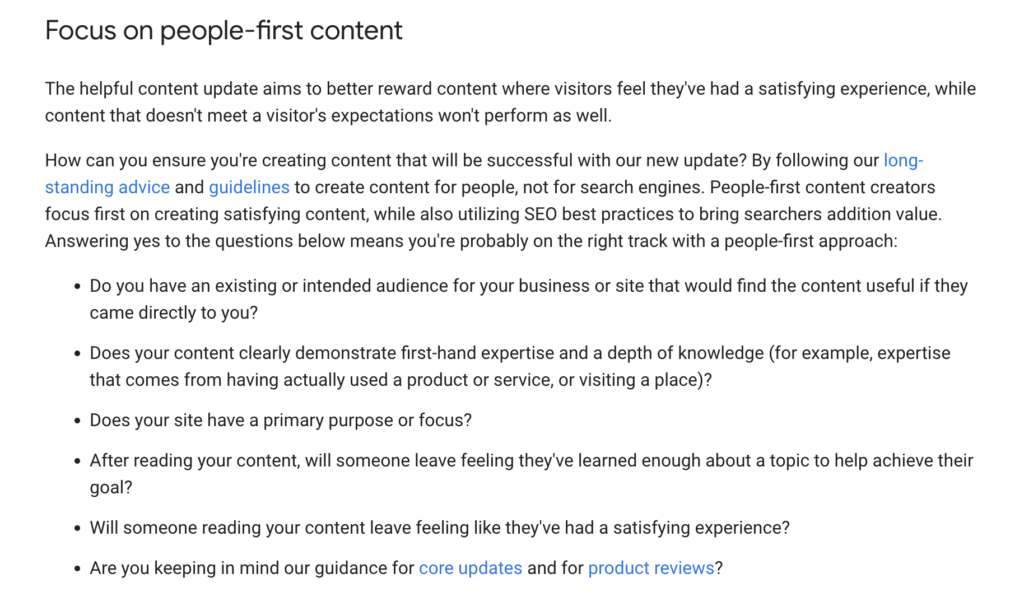
You can probably internalize the first question as:
- Does your content target a specific audience/persona? (Check Hubspot's free buyer persona generator tool if you don't!)
Then they get into more E-A-T-related stuff:
- Is there any proof that you know what you're talking about? (Do you have experience/awards/reviews/degrees related to your niche that you can reference?)
- Does your content help show any expertise in your site's niche? Or do you cover the same topics and points as your competitors?
We'll get into some ways that can potentially help with this stuff later.
Don't Create Content Primarily For Search engines
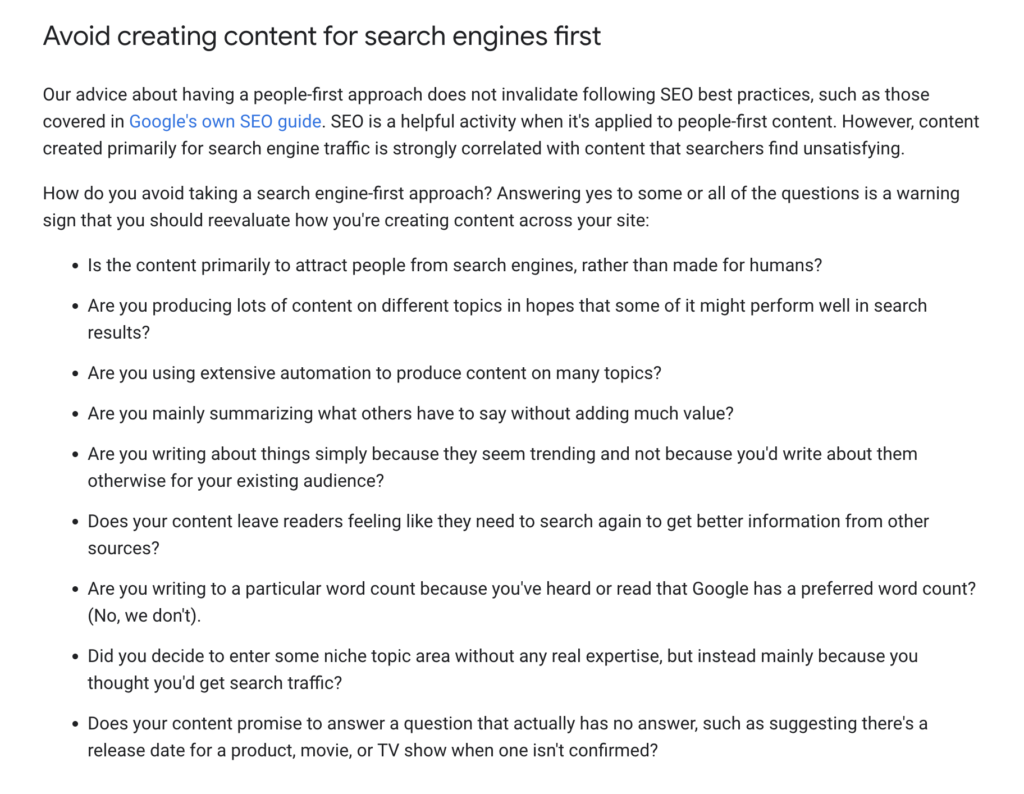
Based on what Google shares, we see a few important questions to keep in mind:
- Are you adding terms suggested by SEO tools to the detriment of content quality?
- Are you going too broad with your topics? (It'll be interesting to see if news sites get hit.)
- Do you over-rely on AI writing ‘assistants' without careful inspection before hitting publish?
- Does your content add anything new to the SERPs? (Do you cover topics your competitors do, and then also go the extra mile by adding something new?)
- Are you including fluff in your content in order to reach a certain word count?
- Does your content follow through on what its headline promises?
These are interesting questions to ask yourself during the content creation process.
We'll each have to wait and see if our sites meet the criteria.
But let's look at some potential ways we can ‘future-proof' the content we produce.
Things To Consider as You Create content
Please take the use of the term future-proof here with a grain of salt.
It's impossible to know what will always work. And you could argue there's no site too big to fail.
But we want to share some ideas that may help you!
On-Page SEO Writing Tools
There's no denying that tools like Surfer and MarketMuse are awesome. We use them, and they're great.
Sharing a list of related terms for a topic that ranking pages use makes the writing process for a given topic as easy as paint by numbers.

And counter to the point I'm about to make; I highly recommend using one of these tools in your content creation process.
But as many have said before, an over-reliance on them can lead to top-ranking pages that regurgitate the same points.
If you input a keyword into an on-page SEO tool and create outlines based on competitor headers like everyone else in your niche, how can you bring anything new to the table?
Side note: Frase (and maybe others as well) do let you easily look for related questions with People Also Ask, Reddit, and Quora.
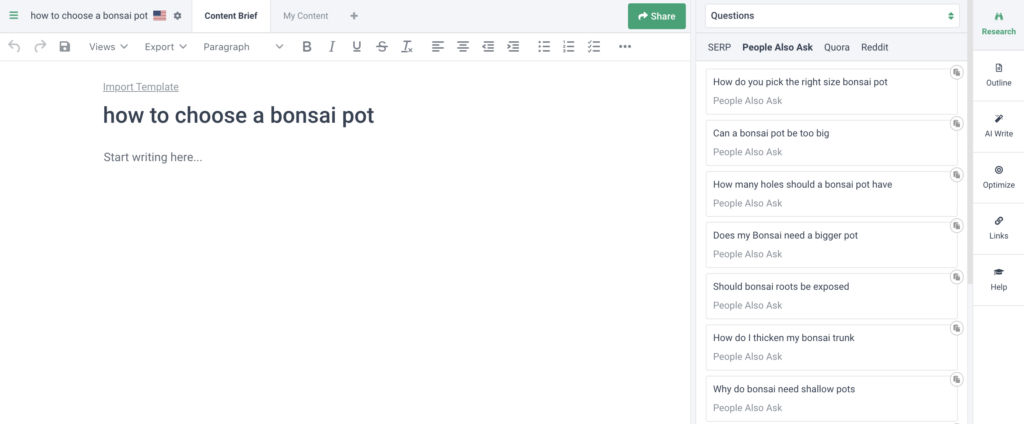
This is great. But it's increasingly becoming standard practice.
And that's why, to stand out and ‘future-proof' your work, it's increasingly important to go the extra mile to do this PLUS add something new to the conversation.
Share information found in Scientific articles
It may have been the great Canadian Steve Toth who was the first to share this as a helpful strategy publicly.
It's about adding information to the topic that the existing top-ranking pages probably have yet to cover via scientific journals.
Considering this update is expected to target content that doesn't add anything new, this could be a straightforward solution.
And there are different ways to do this.
You'll get some results if you Google your keyword or even general niche topic with ‘pdf'. However, the issue with this method is that many of the results may be behind a paywall.
Google Scholar, of course, is another helpful resource for this.
But there are also others resources you can use.
Here are a couple of sites worth checking out:
- Libgen.is
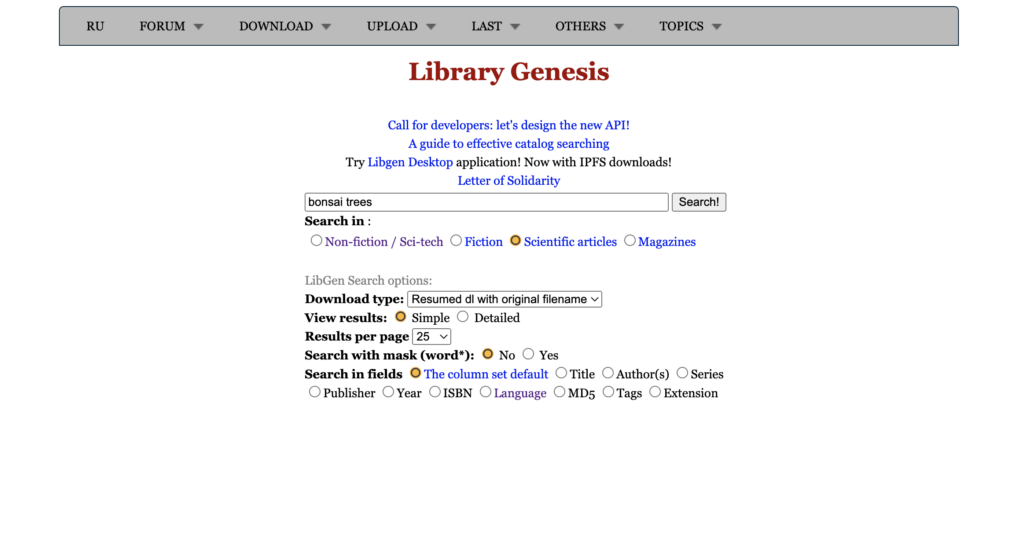
- Booksc.org
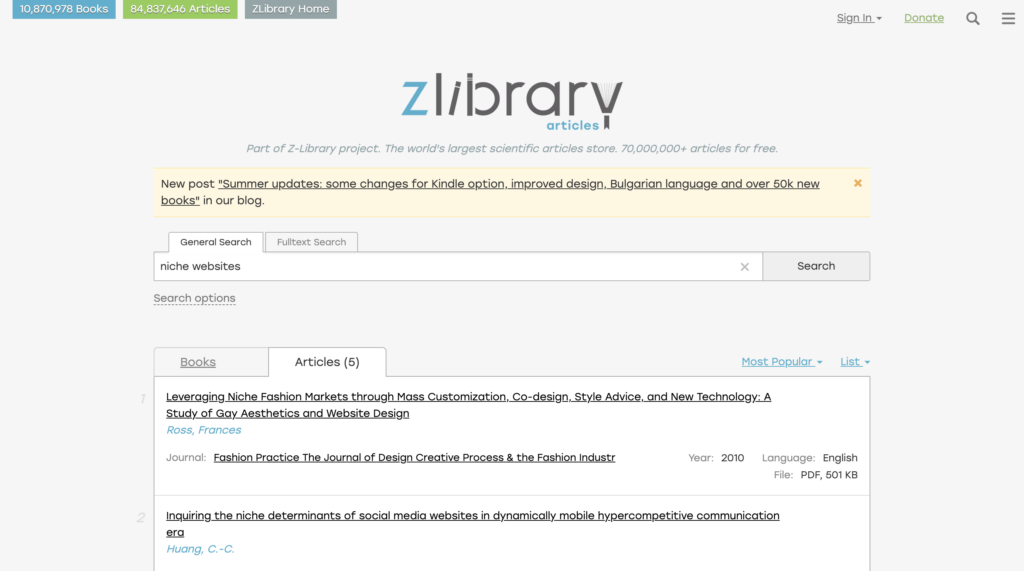
Ideally, you won't abuse these sites, but they are helpful places for finding new sources on most topics.
Double Down on your niche
This not only refers to the standard stuff like topical authority. Here, we also mean analyzing what works for Your specific site and audience.
For example, success stories resonate well with Niche Pursuits readers. So, a few times a week, we like to publish content tailored to match this interest.
This type of content is a win/win in nearly every aspect:
- These stories usually help readers with best practices and general inspiration.
- They help promote the success and hard work of the story's subject.
- They're usually a linkable asset since they don't necessarily target a particular keyword. They do however share helpful information that others in the niche can reference.
- They provide added protection by driving referral traffic from various sources like email, Youtube, Flipboard, Google Discovery, and social media.
Publishing these success stories in different mediums is key. We publish articles, video/audio podcasts, written interviews, social media, and email newsletters.
They're not all winners, but enough are to make the process well worth the effort.
For your site and niche, there may be a certain sub-niche that seems to resonate well with your audience or even a topic your site tends to rank well for.
Seeking these out and setting aside some of your resources to double down on it probably won't hurt.
Jot Down niche Topics You're curious about
If you're curious about a given topic in your niche, likely, others are as well.
You don't always have to rely so much on SEO tools for keyword research.
This isn't a novel idea, but I believe many people don't always follow it in practice.
No worries, we recently published an article that shares some blog topic ideas for inspiration. Steve lists out 95 topic ideas that mostly work well for any niche and target the interests of human readers.
In every niche, some topics may show up as 0-10 monthly search volume but can still generate thousands of monthly visitors.
This point also relates to the update's priority on people-first content.
The guidelines provided by Google suggest removing ‘unhelpful' content. This will require an in-depth content audit and depending on the size of your site may be a huge undertaking.
One relatively quick thing you can do though is to check any articles on your site by any author you may have let go for issues like plagiarism. Removing these articles from your site may help mitigate.
Create your Content Outlines with the reader in mind
At the end of the day, Google is a content aggregator. It wants to please its users by establishing trust and credibility it can help answer queries. And analyzing how users react to results helps them perfect their processes.
For a content creator, this means helping Google help searchers find what they're looking for as quickly as possible.
Of course, you want to keep a visitor on your page for as long as possible but giving them the answer and providing additional information that may interest them down the page is good practice.
For instance, in a list post, why not jump right into the list after a short introduction?
If you want, you can always cover contextual headers that include most of the Surfer suggestions after the list.
But let's say someone searches ‘best vpn', is it really necessary to have your first header ‘What is a VPN?'
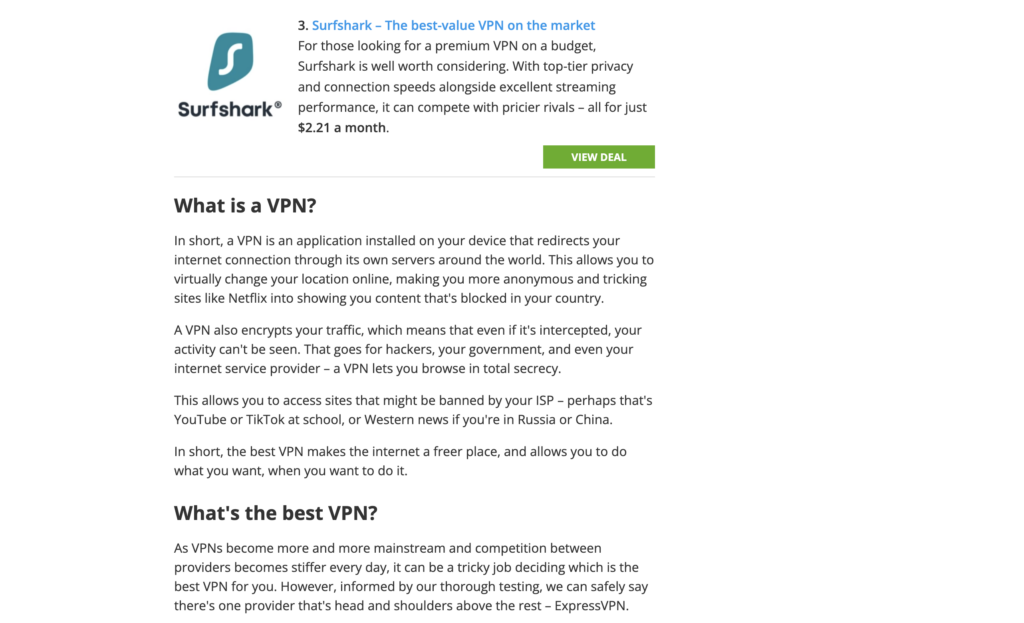
Big sites like Tom's Guide can get away with this kind of thing, but smaller, independent publishers are probably better off satisfying the search intent even within the first paragraph.
Consider implementing a practice like the one laid out by Siege Media founder and all-around awesome resource Ross Hudgens.
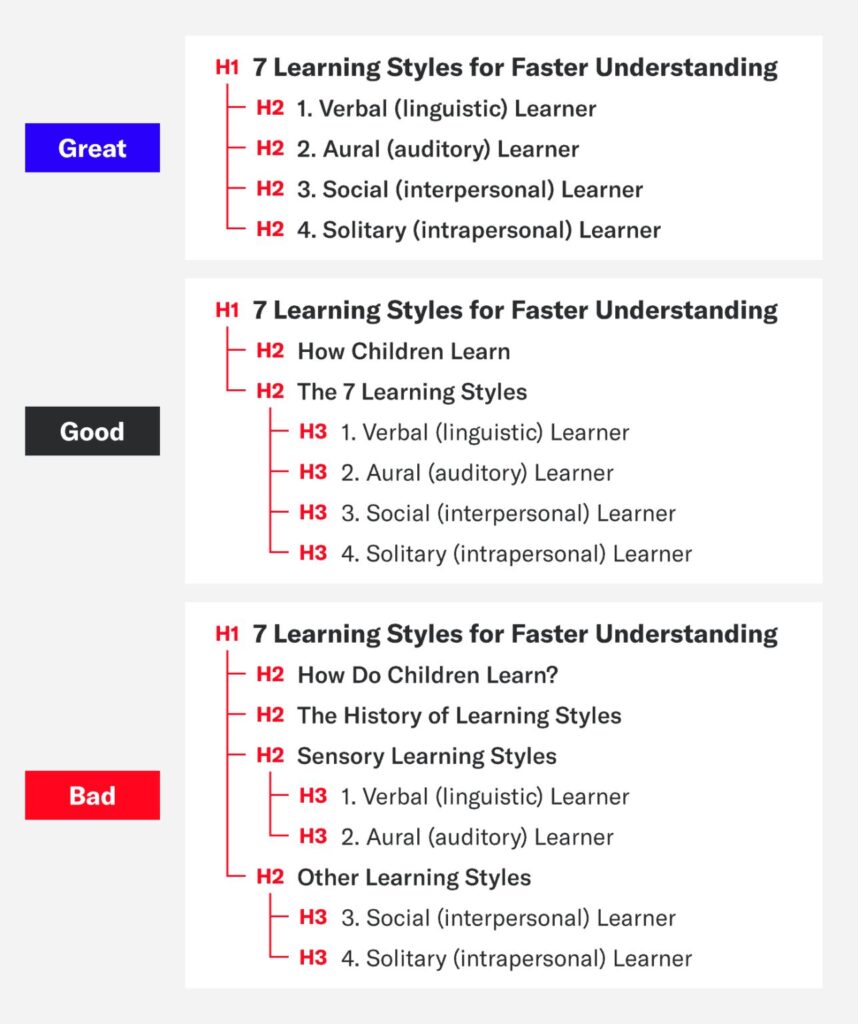
It seems only fair to make your structure as easy as possible for a reader or Google bot to follow.
Closing in on Google's Helpful Content Update
To recap:
- Don't over-rely on SEO writing tools (or AI writing assistants)
- Add to the SERPs by seeking-out new information from scientific journals
- Double down on what got you to the dance
- Cover topics you've searched about your niche regardless of estimated search volume
- Make sure your content structure is easy to follow
Time will tell if any of this is helpful.
These are just some things that have worked for us, so maybe they'll do the same for you too. I'm sure I'm missing some stuff but we just wanted to get out some hopeful tips.
Anyways thanks for taking the time to read this.
And let's all cross our fingers that we make it through this update unscathed.
The post Google’s Helpful Content Update [5 Things To Boost Your Site’s Content] appeared first on Niche Pursuits.


